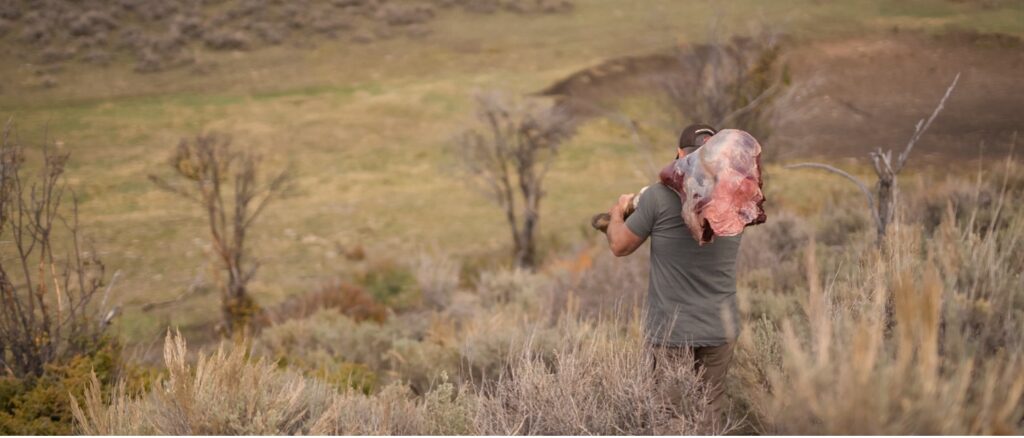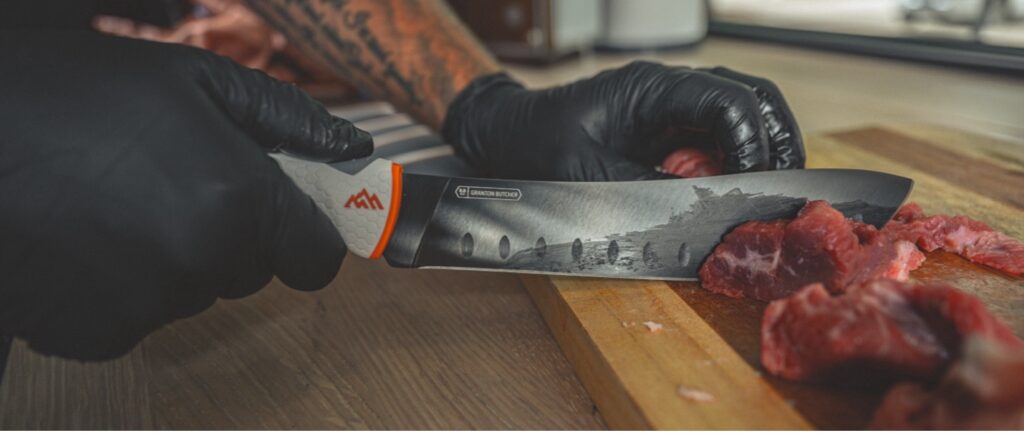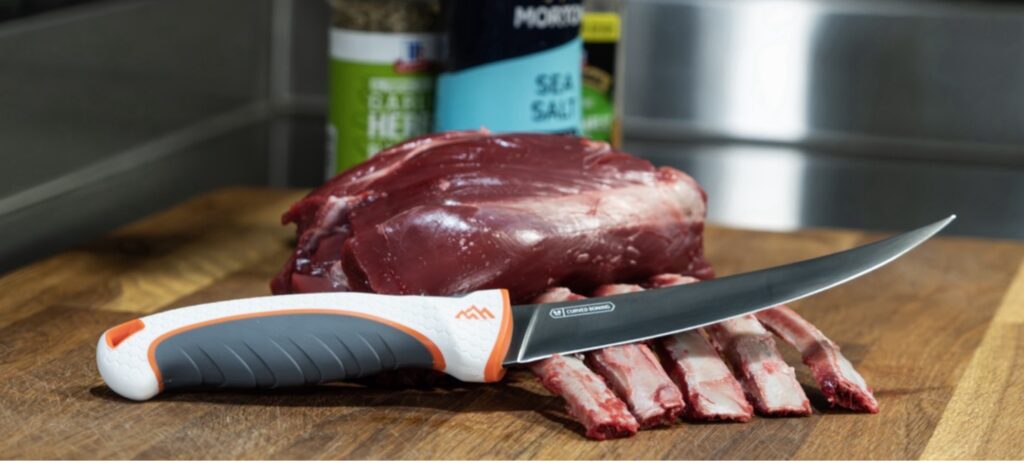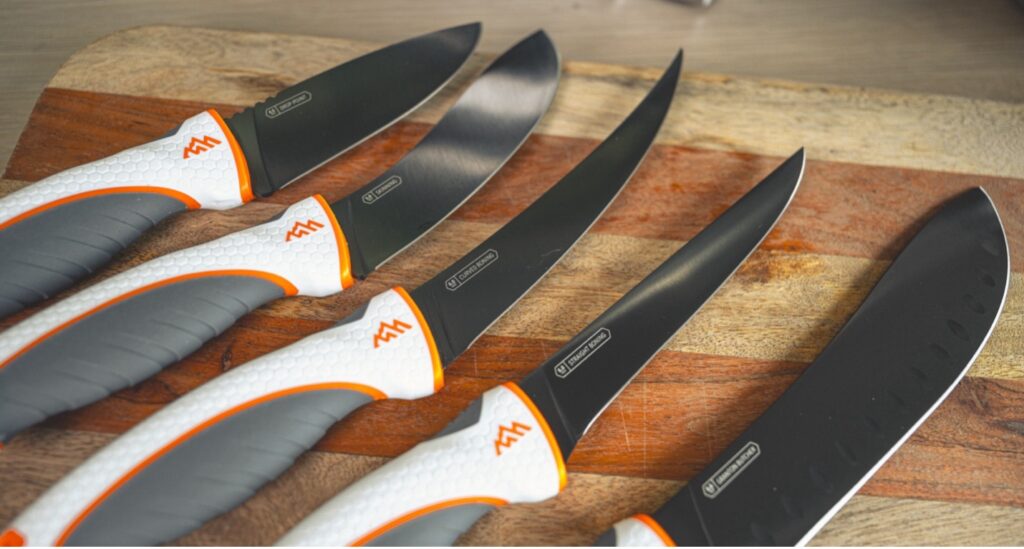For many, elk hunting is more than just a pursuit—it’s a connection to nature, a deep-rooted tradition, and a commitment to sustainable living. As we venture into the wild in search of this majestic animal, we embark on a journey that teaches us about patience, and respect. The rewards of elk hunting are not only in the harvest but also in the experience and the bounty of nutritious wild game meat that provides nutrient-rich meals for the following year.
Elk hunting is an endeavor that requires skill, preparation, and an understanding of the animal and its habitat. Whether you’re hunting in the dense forests of the Rocky Mountains or the arid deserts of New Mexico and Arizona, elk hunting demands physical endurance and mental fortitude. The challenge is part of what makes it so rewarding.
Beyond the physical and technical aspects, elk hunting is also a deeply emotional and spiritual experience. The early mornings spent in the crisp mountain air, the stillness of the forest, and the moments of solitude all contribute to a sense of connection with the natural world. The success of a hunt is not measured solely by the harvest but by the entire experience—from the planning and preparation to the time spent in the wild.
One of the greatest rewards of elk hunting is the meat itself. Elk meat is one of the healthiest, most nutritious sources of protein available. It’s lean, low in fat, and high in essential nutrients like iron, zinc, and B vitamins and best of all free from antibiotics, hormones, and artificial additives.

Elk meat has a rich, distinctive flavor that reflects the animal’s natural diet. It’s versatile and can be used in a wide range of dishes, from hearty stews and roasts to tender steaks and sausages. Cooking with wild game allows us to reconnect with the culinary traditions of our ancestors and explore new, creative ways to prepare and enjoy wild game we harvest.
By choosing to hunt and process our own meat, we take control of our food supply and make a conscious decision to live a sustainable lifestyle. We reduce our reliance on industrial agriculture, which often involves practices that are harmful to the environment and animal welfare. Instead, we embrace a way of life that is more in tune with nature and the cycles of the seasons.
Processing wild game meat is an integral part of the hunting experience. After the harvest, the work of field dressing, butchering, and preserving the meat begins. This process is labor-intensive, requiring knowledge and skill, but it is also incredibly rewarding.
Processing wild game is a skill passed down through generations, a blend of art and practicality. It involves more than just breaking down an animal into consumable parts; it is about honoring the animal and utilizing every part to minimize waste. This meticulous process often requires multiple hands and a wealth of knowledge, making it a communal activity.

Families and friends gather to share the workload and the experience, turning what could be seen as a chore into a cherished tradition. Elders teach the younger generation the nuances of the craft, from skinning and butchering to curing and preserving. These sessions are rich with storytelling, laughter, and learning.
In many ways, the act of processing wild game is a return to traditional practices that have been lost in our modern, convenience-driven society. It reconnects us with the food we eat and reminds us of the effort and respect required to bring it to the table. When we prepare and cook wild game meat, we are reminded of the hunt and the natural world that provided it. Every meal made with elk or other wild game is a reminder of the hunt—the early mornings, the miles hiked, the patience required, and the respect for the animal. It’s the taste of the wild, of the mountains and forests where the elk roamed. Each bite is a testament to the hard work and dedication that went into the hunt and the care taken in processing the meat.

Elk hunting and the consumption of wild game meat offer a unique and deeply fulfilling way of life, bringing people together. Sharing a meal made from an animal you’ve hunted and processed yourself is a deeply rewarding experience. It’s a journey that connects us to the natural world, teaches us valuable skills, and provides us with some of the healthiest and most flavorful meat available. For those who embrace the hunt, the rewards are far greater than the harvest itself—they lie in the experiences, the connections, and the traditions that are passed down through generations.

Whether you are a seasoned wild game connoisseur or new to the experience of hunting and processing wild game, having the proper tools is a must. That is why we are extending a 15% off on our NEW ErgoMax 6-piece processing knife set, exclusive to the members of RMEF. Use code ERGO15 at checkout to redeem this offer until 9/20/24. This professional grade knife set features five precision crafted knives and two-stage sharpener to enhance your wild game experience. Built with high carbon steel and finished with black titanium coating, these knives are built to last.
Happy hunting from everyone at Outdoor Edge.
If you are in search of culinary inspiration make sure to check out our Wild Game Wednesday blog, where twice a month we highlight a new wild game recipe.
